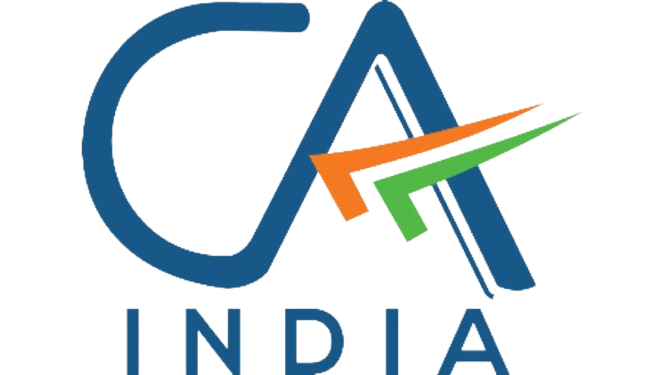Are you a freelancer in India, living the dream of being your own boss, setting your hours (except for those pesky deadlines), and making that moolah? But with freedom comes responsibility, my friend, and that includes the not-so-dreamy world of income tax. Fear not, fellow freelancer, for this guide will help you navigate the system without wanting to pull your hair out (or resort to bartering with mangoes for your tax payment). However, it is always advisable to consider professional help if needed to ensure accuracy and maximize tax benefits.
Taxation rules for Freelancers:
1. Freelancers are taxed at the same rates as salaried individuals, based on income slabs.
2. Freelancers have the opportunity to deduct various business-related expenses, allowing them to lower their taxable income. These expenses may include items such as office furniture or travel expenses for client meetings, as long as they are directly related to the freelancer's work.
Conditions to claim expenses as a deduction from freelancing income
- The expenses are for the freelancing work being carried on and not incurred for any purpose which is an offence or is prohibited by law.
- It has been spent fully and exclusively for the purpose of work
- It is incurred during the relevant period.
- It is not a capital or personal expenditure of the freelancer.
- Maintain detailed record of your income and expenses by using apps and tools to keep track of receipts and invoices.
- When assets claimed or expenses incurred are used for both professional and personal purpose, only a reasonable amount of the expenses and depreciation is allowed as deductions and not the full amount.
- Following expenses can be claimed as a deduction against income:
i. Rent of the property for carrying out your work
ii. Repairs on your business property, including the rented property, along with any repairs to your laptop, printer and other equipments are allowed.
iii. Depreciation helps to spread the cost of an asset, like a laptop, over its useful life. It's like saying, "This thing cost a lot, but I'm going to use it for a few years, so I'll account for that cost slowly over time.”
iv. Office expenses – Office supplies, Telephone and internet bills, conveyance bills, etc
v. Travel expenses for business purpose.
vi. Other Expenses solely related to freelancing work
3. Consider hiring a tax professional for guidance on complex deductions.
Deductions available for Freelancers
- Section 80C (only if opted for old regime): Investments such as:
i. Life insurance premiums,
ii. Equity-Linked savings schemes (ELSS),
iii. Home loan principal payments
iv. Sukanya Samriddhi Yojana (SSY)
v. National Savings certificate (NSC)
vi. Senior Citizen savings scheme (SCSS)
vii. National pension scheme
viii. Others as well.
- Section 80D (only if opted for old regime): Medical insurance premiums for self, family and parents.
- Section 80E: Interest paid on education loans.
- Section 80EEA: Interest on home loans for first time homebuyers
- Section 80G: Donations to charitable organizations and social causes
- Section 80GG: House rent paid, applicable if the freelancer does not receive HRA
- Section 80TTA: Interest earned on savings accounts, up to a certain amount.
- Section 80U: Deductions for individuals with disabilities
4. Presumptive Taxation Scheme (Scheme 44ADA):
- The following tax scheme is applicable to freelancers whose gross annual income does not exceed Rs. 50 Lakhs (Rs. 75 Lakhs with the specified condition that the cash receipt therein does not exceed 5% of total receipts as per the amendment in the Finance Act 2023, and applicable with effect from Assessment Year 2024-25).
- Under this scheme, tax is paid on only 50% of the gross receipts. If the taxpayer claims to have earned a higher sum than 50%, then that higher sum is taxable. - -
- However, opting for this scheme means that certain expenses such as electricity or laptop purchases cannot be claimed separately.
Choosing the Correct ITR form for Freelancers
- ITR-1: Suitable for those with a full-time job for part of the year and small freelance projects. Freelance income should be added as an additional source of income.
- ITR-3: For those with substantial freelance income, along with capital gains or multiple rental incomes.
- ITR-4: For freelancers earning under Rs. 50 lakhs (Rs. 75 Lakhs with specified condition) with no capital gain or rental income and who opt for the presumptive taxation scheme.
- If you work as a freelancer, consider filing your income tax return using ITR-3 or ITR-4. You can choose the presumptive taxation scheme under section 44ADA of the Income Tax Act, 1961, which exempts you from bookkeeping and tax audit requirements. However, your income should be below ₹ 50,00,000 (₹ 75,00,000 with specified income), and you need to show 50% of your gross receipts as income.
Points of consideration for filing your ITR:
- Ensure all sources of income, including freelance work, are accurately reported.
- Maintain detailed records of all business-related expenses to claim appropriate deductions.
- Select the correct ITR form by navigating to the Income tax E-filing portal and fill out the relevant form as required.
- Consider seeking professional help from a tax consultant for valuable guidance, ensure accurate filing and help maximize your tax benefits.
- Filed ITR serves as proof of income, which is crucial for various financial transactions like applying for loans or credit cards.
Tax rate for Freelance work
In India, Freelancers, like salaried employees, have the option to choose between the old and new tax regimes when filing their ITR. Below is a detailed look at the tax rates and annual income slabs under both regimes:
Income tax slabsNew Tax regimeOld Tax regime(without deductions and exemptions)(with deductions and exemptionsUp to ₹ 2.5 LakhsNo taxNo tax₹ 2.5 Lakhs to ₹ 3 LakhsNo tax5% above ₹ 2.5 Lakhs₹ 3 Lakhs to ₹ 5 Lakhs5% above ₹ 3 Lakhs5% above ₹ 2.5 Lakhs₹ 5 Lakhs to ₹ 6 Lakhs5% above ₹ 3 Lakhs₹ 12,500 + 20% above ₹ 5 Lakhs₹ 6 Lakhs to ₹ 9 Lakhs₹ 15,000 + 10% above ₹ 6 Lakhs₹ 12,500 + 20% above ₹ 5 Lakhs₹ 9 Lakhs to ₹ 10 Lakhs₹ 45,000 + 15% above ₹ 9 Lakhs₹ 12,500 + 20% above ₹ 5 Lakhs₹ 10 Lakhs to ₹ 12 Lakhs₹ 45,000 + 15% above ₹ 9 Lakhs₹ 1,12,500 + 30% above ₹ 10 Lakhs₹ 12 Lakhs to ₹ 15 Lakhs₹ 90,000 + 20% above ₹ 12 LakhsAbove ₹ 15 Lakhs₹ 150,000 + 30% above ₹ 15 LakhsRebate under Section 87A applicableUp to ₹ 5 LakhsA rebate of up to ₹ 12.500 is available for individuals with an income of up to ₹ 5 Lakhs, effectively making their tax liability zero.Tax rebate up to Rs.25,000 is applicable for resident individuals if the total income does not exceed Rs 7,00,000 (not applicable for NRIsUp to ₹ 5 Lakhs to 7 LakhsNILSteps to calculate taxes for freelance work in India?
It's important to keep in mind that paying taxes is a legal responsibility and a means of contributing to society by funding public services.
Step 1: To find your total gross income, add up all the receipts from your freelance work and add other income sources. Next, deduct all allowable business-related expenses from your gross income.
Step 2: To determine taxable income: Deduct amount of TDS already deducted by your clients and deductions under various sections like 80C, 80D, etc., to arrive at the net taxable income.
Step 3: Double-checking all information before submitting your return is essential to avoid mistakes. Be sure to claim only legitimate deductions and ensure all figures are accurate to significantly reduce the risk of an audit. Make it a priority to review your finances regularly to plan for tax season and future financial goals.
Liability for advance tax and its calculation:
If the total tax liability during a financial year exceeds ₹10,000, the taxpayer is required to pay taxes every quarter. This is called advance tax.
Calculate advance tax payable for freelance work
On or before 15th JuneNot less than 15% of advance taxOn or before 15th SeptemberNot less than 45% of advance tax as reduced by the tax paid in the last instalment.On or before 15th December
Not less than 75% of advance tax as reduced by the tax paid till the last instalments. On or before 15th MarchThe whole amount (100%) of advance tax as reduced by the tax paid till the last instalments.
Ways to pay advance tax
- You can pay online through the IT Department’s website.
- You can also fill out a paper challan and deposit tax by physically visiting your bank.
Penalties for non-payment of advance tax
If you fail to pay advance tax or underpay it, you may be liable to pay interest under sections 234B and 234C of the Income tax Act:
Section 234B: Interest is charged if advance tax paid is less than 90% of the assessed tax
Section 234C: Interest is charged for deferment of advance tax instalments.
Method of maintaining Books of Accounts for freelancers
Utilizing the cash basis of accounting may convey the impression of diminishing one's tax liability. However, the practical outcome of this approach may manifest as mere postponement of tax payments rather than a substantive reduction in overall tax obligations.
Upon electing a specific accounting method, consistent adherence to said method is imperative. The frequent alteration of accounting methodologies with the sole intent of tax avoidance or minimization is not permissible.
The accrual basis of accounting is generally deemed more prudent, except in cases where income receipts exhibit irregularity or unpredictability. The Income Tax Act mandates the maintenance of books of accounts for income tax purposes, a requirement delineated in section 44AA and Rule 6F.
Disclaimer: Our main aim is to assist the businessman with applicable laws and regulations compliances and providing support at each and every level to make sure the business stays compliant and growing continuously. The content is intended for educational purposes and should be utilized according to the specific needs of each case.
For any query, help or feedback you may get in touch on gjafca@gmail.com
 CA Gopal J Agrawal & Co
CA Gopal J Agrawal & Co 
